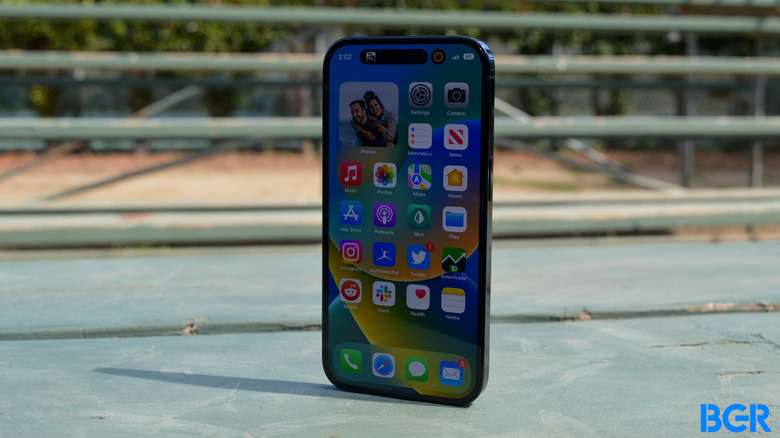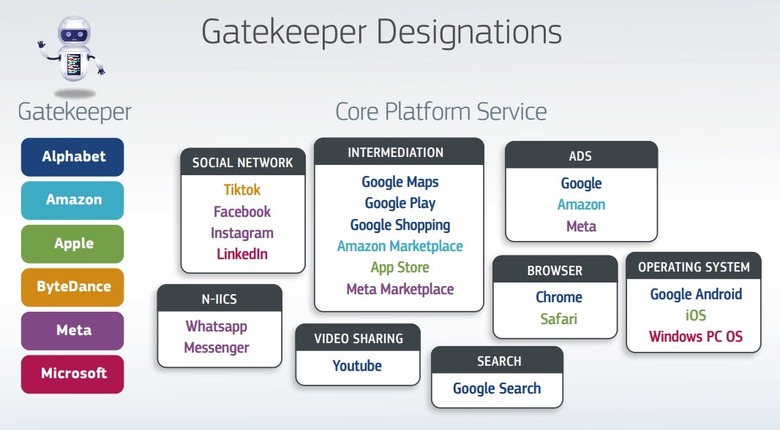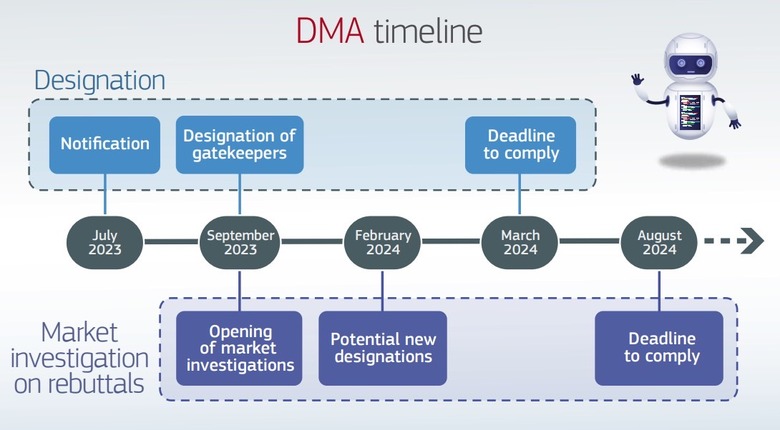EU Ruling Says Apple Doesn't Need To Add RCS Support To iMessage - For Now
If you were anxiously waiting for the European Union (EU) to force Apple to support RCS messaging in iMessage, it looks like that's not going to happen anytime soon. The European Commission on Wednesday announced the list of gatekeepers that fall under the block's Digital Markets Act (DMA) law, and Apple's Messages app isn't a gateway service.
A report earlier this week indicated that Apple has protested the gatekeeper status for iMessage. Similarly, Microsoft defended Bing against being a gatekeeper. Now that the EU has announced the first round of gatekeeper companies and gatekeeper services, we know that the iMessage platform is exempt.
The EU will investigate Apple's claims and provide a definitive answer within five months. The same goes for Bing. According to the EU's schedule, new gatekeeper designations will come in February 2024.
The EU's official gatekeepers: Companies and services
The DMA law is supposed to protect users and businesses from big tech companies like Amazon, Apple, Google (Alphabet), Microsoft, Meta, and others. The EU wants to ensure certain digital services are more open, like operating systems and digital stores. And that chat apps like iMessage work with competing services. Like Google's RCS messaging system.
The following graphic shows that the EU has established six companies as gatekeepers per the DMA: Alphabet, Amazon, Apple, ByteDance, Meta, and Microsoft. But not all their services will be considered gatekeepers for now. The EU has outlined 22 core services that qualify as gatekeepers.
The iMessage exemption explained
iMessage isn't one of the services listed by the EU, but Apple's App Store, Safari browser, and the iOS operating system are. Furthermore, the EU is looking at iPadOS for also being a gatekeeper in the region. It'll have an answer for the iPad operating system in 12 months.
As for chat apps, only Meta's WhatsApp and Messenger are on the list of gatekeepers.
The iMessage designation isn't final. The Commission has begun an investigation to see whether four additional services qualify as gatekeepers. One is iMessage. The other three are Bing, Microsoft Edge, and Microsoft Advertising.
The EU also explained that Gmail, Outlook, and the Samsung Internet Browser do not meet the thresholds for gatekeeper designation:
Alphabet, Microsoft, and Samsung provided sufficiently justified arguments showing that these services do not qualify as gateways for the respective core platform services. Therefore, the Commission decided not to designate Gmail, Outlook.com, and Samsung Internet Browser as core platform services. It follows that Samsung is not designated as gatekeeper with respect to any core platform service.
What happens next?
The gatekeepers on the list have six months to make changes to the services on the list so they comply with the DMA rules. That might mean opening the App Store to third-party payment systems for Apple. And allowing third-party app stores and app sideloading on iPhone in the EU.
Companies that do not comply risk fines of up to 10% of their worldwide turnover. The penalty goes up to 20% for repeated offenses.
The gatekeeper list will be dynamic, as the EU can add and remove companies and services. Here are the criteria for becoming a gatekeeper:
(i) when the company achieves a certain annual turnover in the European Economic Area, and it provides a core platform service in at least three EU Member States;
(ii) when the company provides a core platform service to more than 45 million monthly active end users established or located in the EU and to more than 10,000 yearly active business users established in the EU;
(iii) when the company met the second criterion during the last three years.
It'll be interesting to see whether Apple addresses the DMA in any way during or after the iPhone 15 event. Apple will have to make changes to iOS 17 to comply with the gatekeeper status in Europe.


